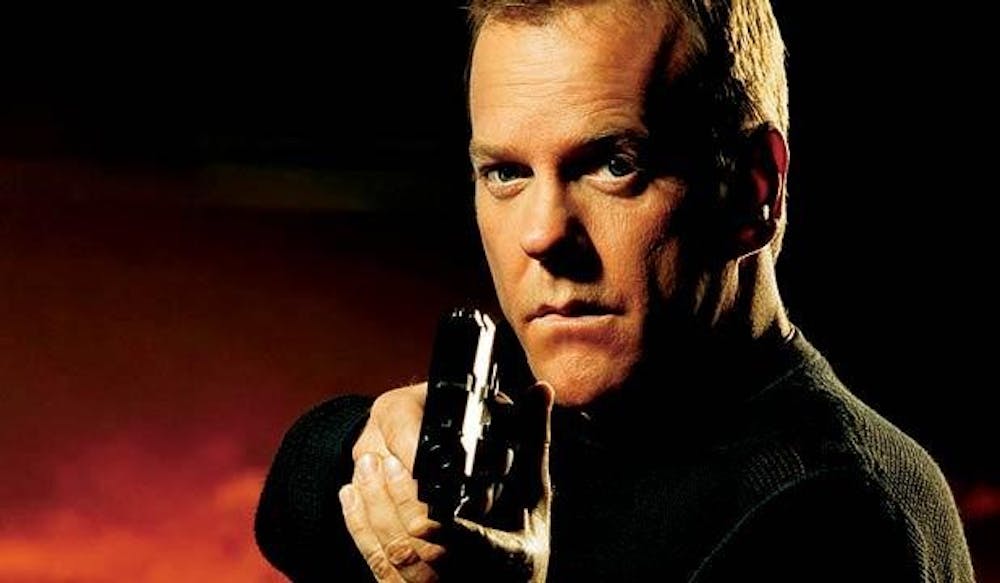After much speculation, FOX announced that this May will bring the end of “24” after eight conspiracy-packed seasons.
And though the series has been little more than a shell of its former, thrilling self in the last three seasons, it is impossible to deny the influence that it has had on network television over the past near-decade.
Hundreds of thousands of words have been penned about the series’ real-time format, but for good reason. When “24” debuted back in 2001, critics and fans were blown away because it was like nothing they had seen before.
And with such a high-risk concept, it had to have been difficult to craft those early episodes — still the series’ best — with the correct amount of pacing without boring people into tuning out. Later seasons have made a mockery of the real-time format, with characters crisscrossing the city in minutes, never seeming tired and not even mentioning food, but those early episodes actually had people showering, changing clothes and more. As outrageous as the plot seemed, those elements felt very real.
Outside the context of the series itself, “24” and FOX should be lauded for their decision to not start the series until January each year and run it without repeats.
Back in 2004 when that plan was hatched, not many — if any — popular scripted series were running without re-runs. Before DVR and Internet streaming, re-runs were still big business and aside from FOX’s other hit, “American Idol,” not many big-time series started halfway through the season.
The January premiere of “24” became a TV event, and the straight-through run of episodes was recognized to be so perfect for serialized programs that every network but the still-embracing-reruns CBS uses it in some way.
“Lost” has had a January-to-May run for three years now, “Heroes” did a similar run this past fall and “Chuck” is doing it this spring. And though re-runs certainly still exist on broadcast television, they are fewer and far between — and “24” had at least a little something to do with that.
When discussing “24” it is also impossible not to bring up the depictions of Middle Eastern countries, torture and the political ideology of the creators, which is unsurprisingly conservative.
What is perhaps most interesting is that while the course of “24” was certainly altered by the events of Sept. 11, the series probably served as an outlet for Americans to face their fears and even live vicariously through Jack Bauer in a form of morbid fantasy.
The fear propagated by Sept. 11 that “everyone” who looked “Middle Eastern” was a terrorist was confirmed and promoted by “24,” and along with the show’s pro-torture stance, it definitely did not hurt the government’s selling of the War or Terror.
Though the series gets knocked for continuing to rely on those tropes and characters as time has gone on, the series has also embraced other elements from the headlines, such as private military firms.
And aside from all that, “24” has been generally awesome for eight years. It has had extreme highs — seasons one and five — and tepid lows — season six — but has mostly been consistent throughout.
Being tied down to its originally revolutionary premise and concept has hurt it in later seasons because there’s only so much you can do with terrorists, information moles and Kiefer Sutherland saying “damnit,” but even the dumbest hours of “24” feature something redeemable.
It’s now time for the silent clock to run out, and television will never be the same.
TV Surveillance

Get stories like this in your inbox
Subscribe





